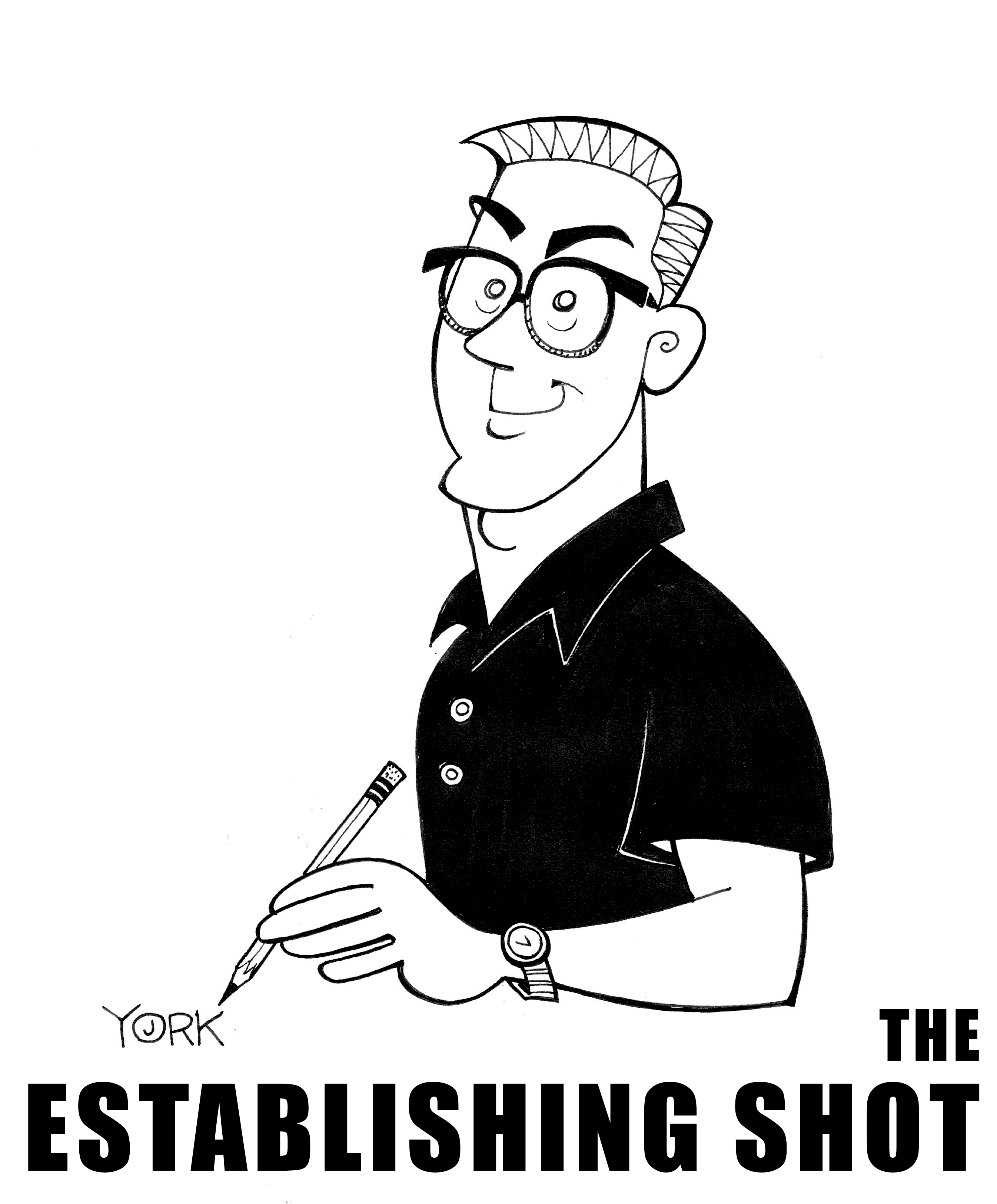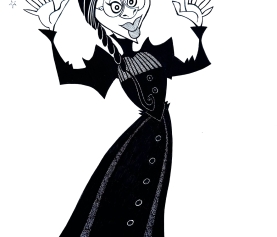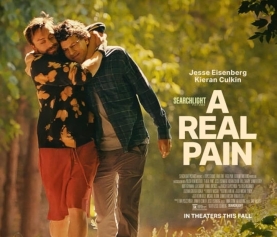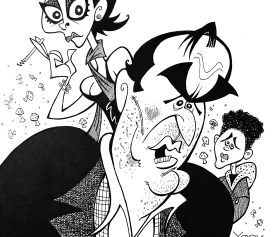
Very few horror films knock my socks off. I used to joke when I wrote horror reviews for the Examiner online that the scariest thing about the genre was how few of such movies actually frightened me. RED ROOMS, now in select theaters, and coming soon to VOD, did just that however, and incredibly so. The latest from filmmaker Pascal Plante is incredibly impressive from its unique premise about a young woman following the trial of a serial killer to all of its sharp acting and superb production values. Mostly however, it is smart as hell in how it slyly indicts the hobby of following true crime and scolds its obsessed followers for their complicity in turning such horrific events into lurid guessing games, chat room bloviating, and glossing over the victims in pursuit of such a hobby. It’s a stunning takedown of what has become one of society’s most prolific and profitable past times these past 30 years, a cottage industry that dominates television, podcasts, and bestseller lists.
Yet, Plante does all of his methodical dissection with nuance and cleverness. His film is never heavy-handed or nutty, but instead, thoughtful, pragmatic, and wholly skillful in its weaving of a web around those of us in the audience. He draws us deeper and deeper into the story without ever making it feel like we’re having it shoved down our throats. Pascal is a sly filmmaker, taking an unhurried approach, even giving his movie a foreign film-style pedigree by placing it in Montreal, Canada where everyone speaks French. Indeed, most of the dialogue in the movie comes with English subtitles.
But his savvy doesn’t stop there. He starts his film with an almost documentary-style approach, letting the grounded reality do the heavy lifting for him without any need for over-the-top showmanship. It’s an approach that William Friedkin took in 1973 in his film THE EXORCIST to ensure we bought into what we were seeing before all hell broke loose once the satanic possession of the young girl Regan took place in the second hour. (Interestingly, Friedkin started his career as a documentarian.)
A confident sense of cool and calm is evident in all Plante does, from his unfussy camera work to the quiet editing that moves the story forward without drawing undue attention to itself. His cool extends to how he directs his protagonist as well. Kelly-Anne (Juliette Gariépy) is a part-time model, avid online poker player, and thoroughly obsessive true crime buff. As the film starts, we see her quietly and patiently waiting in line for hours downtown outside the courthouse, hoping for the opportunity to claim a seat for the scandalous trial of Ludovic Chevalier (Maxwell McCabe-Lokos). Chevalier is a mopey, mole of a man charged with not only slaughtering three teen girls but also filming their horrifying demises for profit as underground films. The film cleverly suggests that despite the debate over whether snuff truly exists, they likely do since there is gobs of money to be made off of the morbidly curious trolling for such on the dark web.
Despite such a lurid premise, Plante’s film is a picture of discretion and intellect. The opening in the courtroom isn’t dark and sinister, but rather, bright and unfettered. The story is scary enough without the location underlining it. Plante’s story doesn’t need the usual bells and whistles to draw us in; the dialogue alone, setting up the trial’s specifics, is enough to send chills down our spines. The only anomaly to the setting is the glass booth that Chevalier is assigned to during the trial to ensure his protection. Or perhaps, that of those surrounding him.
Then Plante cleverly lays out the exposition via the opening trial statements by both the DA and the defense attorney. The prosecutor explains exactly what Chevalier is on trial for and then, Chevalier’s attorney counters her arguments. It is ten minutes of pure, uninterrupted discourse, marvelously presented by the respective actors (Natalie Tannous and Pierre Chagnon). Throughout, Kelly-Anne’s eyes are laser-focused on the attorneys; unblinking, unfazed, and as emotionless as Chevalier. Occasionally, Plante cuts away to view the reactions of Francine Beaulieu (Elisabeth Locas), one of the victims’ mothers, taking the time to remind for whom the bell tolls greatest.
Kelly-Anne’s ears perk up when the DA mentions the fact that the tape of the killer’s torture and murder of the third victim has never been found. This missing piece will soon become an obsession of Kelly-Anne’s as she starts searching for additional answers beyond the courtroom. Her curiosity, expanding with each ongoing minute, will end up leading her to places both unsavory and dangerous, but not always as one would expect. The film keeps you guessing and such insecurity only adds to the overall chilling effect.
Along the way, Kelly-Anne will forge a friendship with Clementine (Laurie Babin), an energetic spirit, as well as a Chevalier “groupie.” She’s also in attendance for the daily trial, and curious about the tapes too. That bonds them, as does a sense of mentoring from the more savvy model to the quite naive fan girl. Kelly-Anne even introduces her to racket sports, but mostly, their bonding becomes another form of their obsession as they live to follow the trial, even sleeping outside together in front of the courthouse to ensure they get seats each day.
Here is where Plante starts to darken the palate and introduce more tension into the insinuating score by Dominique Plante, his sister. As Kelly-Anne and Clementine become more anxious about that elusive third tape, they push any concerns about justice to the side. Plante cleverly gets us to share in their obsession, playing us the same way that Alfred Hitchcock did in REAR WINDOW when he made all of us in the audience complicit with James Stewart’s spying.
Fortunately, the director is extremely tasteful in what he shows of the snuff and doesn’t show. To tell you any more beyond this would be to ruin too many of the brilliant surprises in store for you in this stellar thriller. Suffice it to say, you will be flabbergasted by many of the twists as well as the ever-darkening persona of Kelly-Anne. Gariépy plays the role expertly, keeping her heroine coolly enigmatic, drawing us in, but holding a lot in reserve.
In a year that has already witnessed some standout horror that’s appealed demonstrably to both critics and audiences alike with films like LATE NIGHT WITH THE DEVIL and LONG LEGS, Plante’s RED ROOMS is the best of them all. It got under my skin and is still burrowing around in there, like a tick that won’t stop gnawing. See it however you can and welcome its power.







